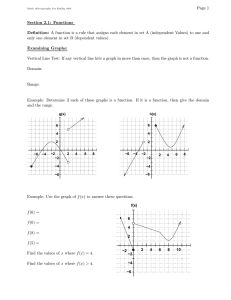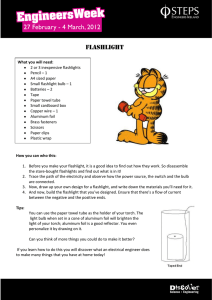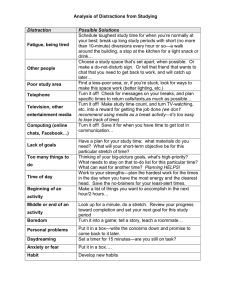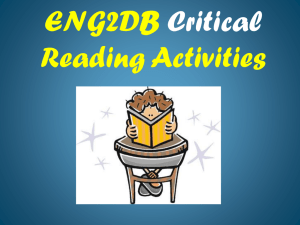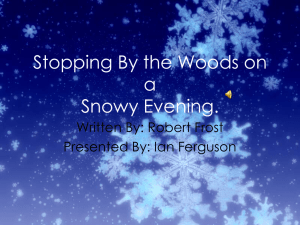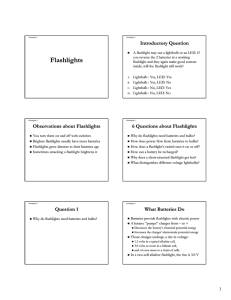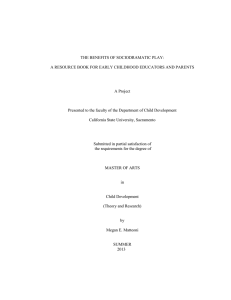Course: Lab # (Standard 4)
advertisement
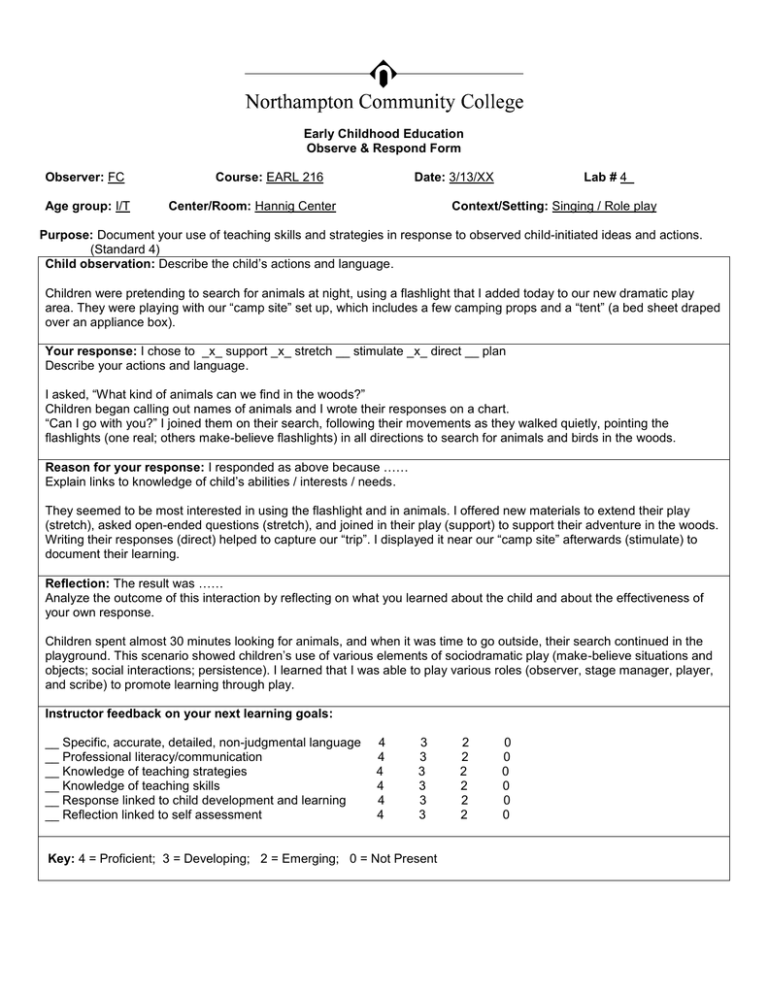
Early Childhood Education Observe & Respond Form Observer: FC Age group: I/T Course: EARL 216 Date: 3/13/XX Center/Room: Hannig Center Lab # 4 Context/Setting: Singing / Role play Purpose: Document your use of teaching skills and strategies in response to observed child-initiated ideas and actions. (Standard 4) Child observation: Describe the child’s actions and language. Children were pretending to search for animals at night, using a flashlight that I added today to our new dramatic play area. They were playing with our “camp site” set up, which includes a few camping props and a “tent” (a bed sheet draped over an appliance box). Your response: I chose to _x_ support _x_ stretch __ stimulate _x_ direct __ plan Describe your actions and language. I asked, “What kind of animals can we find in the woods?” Children began calling out names of animals and I wrote their responses on a chart. “Can I go with you?” I joined them on their search, following their movements as they walked quietly, pointing the flashlights (one real; others make-believe flashlights) in all directions to search for animals and birds in the woods. Reason for your response: I responded as above because …… Explain links to knowledge of child’s abilities / interests / needs. They seemed to be most interested in using the flashlight and in animals. I offered new materials to extend their play (stretch), asked open-ended questions (stretch), and joined in their play (support) to support their adventure in the woods. Writing their responses (direct) helped to capture our “trip”. I displayed it near our “camp site” afterwards (stimulate) to document their learning. Reflection: The result was …… Analyze the outcome of this interaction by reflecting on what you learned about the child and about the effectiveness of your own response. Children spent almost 30 minutes looking for animals, and when it was time to go outside, their search continued in the playground. This scenario showed children’s use of various elements of sociodramatic play (make-believe situations and objects; social interactions; persistence). I learned that I was able to play various roles (observer, stage manager, player, and scribe) to promote learning through play. Instructor feedback on your next learning goals: __ Specific, accurate, detailed, non-judgmental language __ Professional literacy/communication __ Knowledge of teaching strategies __ Knowledge of teaching skills __ Response linked to child development and learning __ Reflection linked to self assessment 4 4 4 4 4 4 3 3 3 3 3 3 Key: 4 = Proficient; 3 = Developing; 2 = Emerging; 0 = Not Present 2 2 2 2 2 2 0 0 0 0 0 0
